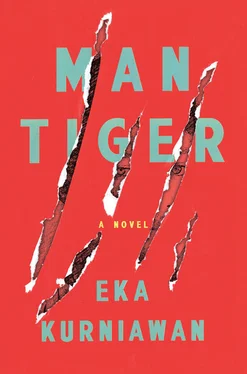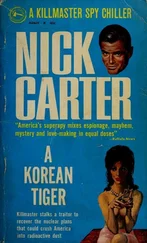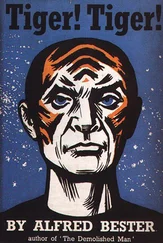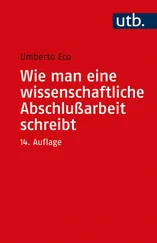Sitting in the barber’s chair, Komar wiped his eyes with a calico cloth, worried that someone from the chicken noodle kiosk might catch him blubbing. Again he bemoaned the passage of time, gone so fast he never had a chance. He stared aghast at his hands, which had hurt his wife hundreds of times, their children too, and again his eyes brimmed with tears. The mistakes were all his. He had carved out his own sorry life for himself. But when he thought of the many times he had returned home to a gloomy wife, to the little devils he had conceived with her, it was clear to him that no man could have done much better. His family ought to have seen how blighted his life was and helped him. Since that wasn’t going to happen, they should forgive his outbursts.
A man came by and asked him to cut the hair of a little boy, and Komar had to turn his face away to hide his redrimmed eyes. He invited the child to sit in the chair. As he prepared to get to work, he tried to reconcile himself to the central new fact of his existence: Nuraeni would give birth to a baby that wasn’t his.
For a while, fleetingly, he was ready to surrender to the cosmos and his own tragic fate within it. But when he got home, he had to contend with the sight of his wife’s belly, and all sense of balance was lost. His temper flared and he beat her, calling her a whore, smacking her with the water-dipper, lashing her with the rattan duster. His heart only lightened when he saw his wife kneeling in a corner of the house in surrender. Then Komar went to his room and lay down alone. When night fell and brought release in the darkness, he cried without a sound, praying that the angels might descend and write down all his misfortunes in a miraculous act of holy pity.
The unborn child grew undeterred within Nuraeni’s shaken womb, enduring the lashes that fell upon its mother, and perhaps developing some sense of the stepfather out there bent on preventing its birth. Mameh was always right beside her mother, now bedridden and frail, shrunk from the constant cruelty. The daughter gave Nuraeni sponge baths, gently soaping the purple bruises before smearing her flesh with a rice and galangal liniment ground in her own mouth. Despite the pain, Nuraeni remained happier than her children had ever seen her before, which touched Margio and Mameh. They had rarely seen her smile, and now she was sharing her little joy with them, a beggar doling out a few treasured pennies. To the two children, she said softly:
“If it is born, it will come with vengeance, to kill Komar bin Syueb.” Mameh sobbed, and Nuraeni’s words crystallized Margio’s desire to kill his father.
When Nuraeni’s belly grew conspicuously large, Margio barred her from doing any more housework. He wouldn’t let her go to Anwar Sadat’s house or to work at home. It still shamed him to know she had been naked before someone other than his father, but Margio’s spirit warmed to see the pleasure his mother took in being pregnant. He took care of the house and prepared the meals. By this point, both the children had completed high school. Margio could stay at home to protect his mother from his father, and rarely hung out with his friends. Komar himself began to find some peace of mind in accepting his ill-fated life. He no longer paid attention to the woman who carried a bastard foetus around his house, and took to spending more time inside his room. Later on, he would come home from work in the wee hours and set off early, and no one knew where he went. Perhaps he kept longer hours at his barbershop, or maybe he was ignoring his business altogether and hiding out somewhere else. Whatever the truth, his family ignored him, caring nothing about what he was up to. They were happy to have him out of sight, wishing he’d have the good sense to leave forever. A man who let his wife stray shouldn’t show his face at home.
When Nuraeni stopped coming to Anwar Sadat’s house, Kasia made inquiries and found out about the pregnancy. After that, she paid regular visits to check on Nuraeni’s health. The bruises worried her, and she frequently arrived with bananas and milk, good food for pregnant women. Nuraeni often felt embarrassed by the midwife’s kindness. Kasia did not know that the baby benefitting from her ministrations was the result of her husband’s infidelity. Kasia’s presence was a trial, but when she said goodbye she raised the expectant mother’s spirits with a report of the baby’s good health, and Nuraeni’s contentment was mixed with pity.
In the seventh month Mameh bathed her mother with water and flower petals. The flowers were not plucked from the jungle garden. Mameh was still convinced her mother found joy in that botanical bedlam. She bought the blossoms from an old woman at the market, and their scent was strengthened with an aromatic oil.
While Nuraeni enjoyed the heavy aroma of the blossoms, Margio was sleeping at the nightwatch hut, curled up beside Agung Yuda. Drunk on sticky-rice arak, Margio muttered, “My mother’s pregnant, and there’s going to be one more neglected kid in the house.” He fell asleep without a blanket, despite the sting of the chilly night air. The winds grew stronger as he slept, pummeling the collapsing cacao plantation as they blew in from the sea, but still Margio remained sprawled unconscious on the braided mat. When he woke, Jafar, a neighbor on patrol duty, was talking. His voice was urgent, but Margio, half-drunk and dizzy, couldn’t comprehend what was being said. Jafar repeated himself. “Your mother’s about to give birth,” he said. Margio had to fetch Kasia to help with the delivery.
Margio stumbled away without a word. He took the shortcut around the surau and was soon stood in front of Anwar Sadat’s house, trying to gather his wits. A terrace lamp lit the dim house and other smaller lights seeped through cracks in the door and pierced the closed curtains. It was a damn cold night and they were sure to be asleep, but someone had to take care of his mother. He walked to the door, shook his head to clear it, and rapped his knuckles on the wood. Silence. He knocked again, more loudly.
There came the sound of someone stirring, and Margio stopped knocking. The front bedroom door opened, pouring light into the living room, and then the curtains were drawn back. Behind the windowpane Laila’s face appeared. As soon as she recognized the boy, she opened the door. She was wearing a nightie that made Margio rather reluctant to look at her. Sniffing the arak on Margio’s breath, she asked:
“What’s going on? You’re drunk, and you’re banging on the wrong door.”
“No,” Margio replied. “My mother’s about to give birth.”
For a moment Laila stared at him, wondering whether Margio was talking drunken nonsense. Then she left him and the open door to look for Kasia. Margio fidgeted on the terrace, blew on his palm to smell his breath and snorted again and again to try and make the odor go away.
Kasia appeared with rolls of cloth and a trunk-like kitbox, which she had Margio carry. Without saying much, she set off in haste, Margio trailing behind. Despite her age, she kept up a fast pace. Most of the children born in that hamlet had come into the world with her assistance, and had Margio and Mameh been born there, Kasia would’ve been the first to hold them.
Mameh and Jafar’s wife stood by Nuraeni, while she lay on her mattress groaning. Komar was not at home, which wasn’t unusual. Commonly he returned only out of necessity, driven back by exhaustion and hunger. “Bastard,” muttered Margio on discovering his father’s absence. Kasia heard what he said and snapped at him. Bad language was completely out of place. It’s no good for the little baby, she added. Margio retreated to a wooden chair in the front room, while Mameh and Jafar’s wife waited by the bedroom door in case Kasia needed something or asked for help.
Читать дальше












